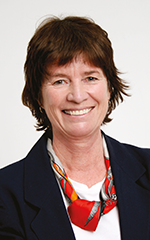

It’s a fresh new year alive with possibility. Happy new year, and here’s wishing you one where you can rise to the challenges ahead and still enjoy all the good things we have in this country.
This issue features a bumper automation professionals section, which, over the years has been the mouthpiece for the SI community in South Africa. We are kicking off with an overview of how to choose an SI, and a contribution from Iritron. There’s more to come, and we would welcome case studies and company profiles from our local SIs.
A new year is for looking ahead, but if you’re like me, you’re still trying to figure out what’s going on with generative AI, and how to make it work for you. Tighten your seatbelt, there’s more. Scientists are pushing the envelope again, and this time it’s quantum computing. I wanted to know more, so here goes.
Quantum computing is part of quantum mechanics, which explores how the physical world works at the molecular level. Basically it’s a new future generation of super-fast computers that process information as qubits, or quantum bits. This replaces the bits in normal computing that we are all used to, that can be either zero or one. The qubits in quantum computing are tiny subatomic particles that can exist in many different states. This means they can be a one or zero simultaneously, or any state between, like a coin spinning in midair.
So, processing will have countless variables, not just two. Computing power will be increased exponentially, and quantum computers will be able to run calculations way faster than the ones we have now. Estimates say quantum computers will operate 158 million times faster than the fastest supercomputers available today. Complex problems, that would now take today’s most powerful supercomputer several years, will be solved in seconds.
Even though large-scale quantum computers are not yet commercially available, quantum computing is already with us. In five to ten years it could become mainstream in the same way that classical computers did in the 70s and 80s. The world’s biggest tech companies are racing to get the edge with quantum. IBM has over 60 functioning quantum computers, and has as collaborators industry giants ranging from Exxon-Mobil to Sony. Its new 433-qubit Osprey chip is the world’s most powerful quantum processor, and its speed is greater than the total number of atoms in the known universe. IBM has recognised the importance of sharing in order to build an industry around quantum, and is making some of its technology available for free. It has more than 20 quantum computers available on its open source quantum toolkit Qiskit, which has been downloaded more than 450 000 times.
Quantum computers could open new frontiers in maths and science, and help solve challenges like understanding climate patterns. They could be used to solve problems that are unsolvable with today’s computers, like in logistics and supply chain management. Quantum machine learning could also make huge improvements in data analysis and pattern recognition – whew, as if ML hasn’t already done that. This opens the way to developing new materials, and tracing financial transactions across global financial networks, for example, in money laundering. All the big banks have their own quantum teams exploring what can be done.
The potential industrial uses are limitless, for example creating new car models from scratch, which now takes at least four years. Boeing has been working with IBM’s quantum team since 2020 on designing new materials for its next generation of aircraft. Other problems where quantum computers could be put to use include predicting traffic flow in complex urban environments; and by simulating complex chemical reactions that are impossible to model with normal computers, they could accelerate the discovery of new drugs.
As with any new disruptive technology there are risks, and a major one is security. Today, cybersecurity is based on RSA, an asymmetric cryptography algorithm used to transfer data safely. While a regular computer needs billions of years to crack RSA algorithms, a fast quantum computer would take hours. Today’s encryption algorithms would become obsolete, putting communications, financial transactions and military defences at risk. Another race is on to develop new encryption methods that would be resistant to attacks like this.
Even though it may not be widely accessible or practical for a few years, it looks like quantum computing is set to shake up the world yet again. I give it five years, and we will be talking about quantum computing and qubits like we first did about IIoT, or generative AI.
| Tel: | +27 11 543 5800 |
| Email: | [email protected] |
| www: | www.technews.co.za |
| Articles: | More information and articles about Technews Publishing (SA Instrumentation & Control) |

© Technews Publishing (Pty) Ltd | All Rights Reserved